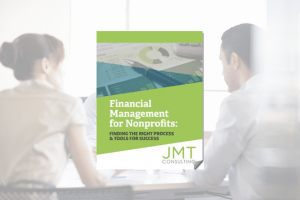All nonprofit board members have a fiduciary responsibility to diligently oversee the fund accounting and financial operations of the nonprofits they govern. Failure to receive timely, accurate information from the organization’s finance team can prevent the board and the finance committee from successfully executing on their responsibility.
This can create disastrous consequences for the board when there is financial mismanagement that might otherwise be detected.
Clear communication and financial reports are key to being sure your board can uphold their fiduciary responsibility for your fund accounting programs.
What Board Members Should be Asking
There are key questions that nonprofit board members should ask and that nonprofit finance teams should be able to answer on demand from their financial management and reporting systems that directly align with these board responsibilities.
- Cash Flow Report: Is our cash flow projected to be adequate?
- Statement of Financial Position: Do we have sufficient reserves?
- Budgeted R&E by Funder: Are any specific expense areas rising faster than their sources of income?
- Budgeted R&E: Are we regularly comparing our financial activity with what we have budgeted?
- Proper categorization at point of data entry: Are our expenses appropriate?
- Cost Allocations, Allowable Expenses: Are we meeting guidelines and requirements set by our funders?
How Financial Management Tools Help Your Nonprofit
Having the right financial management tools for fund accounting can help your organization in two ways:
-
-
- The ledgers you use to capture your financial activity must be sufficiently robust to allow for transactions to be recorded with enough granularity to meet all of your internal management and external compliance reporting responsibilities. Maintaining offline schedules and shadow repositories of financial information harms your finance team’s ability to be both timely and accurate in reporting.
- The financial reporting tools not only need to provide a mechanism for retrieving the data from your ledgers, but they should also be sufficiently flexible and robust to allow you to present the information in a manner that is useful for key audiences. In this case, that is the board. Can you interrogate your data and produce meaningful, timely reports that answer all of the above questions without taking the data out to excel for further massaging?
-
Shared Responsibility
The finance team and the board should have shared responsibility to make sure the organization operates in a financially sound manner and that well-informed decisions are made based on clear, accurate, timely data available on-demand from the financial management systems.
Learn more about using the right tools and processes for your nonprofit’s financial management in this ebook, Financial Management for Nonprofits.


